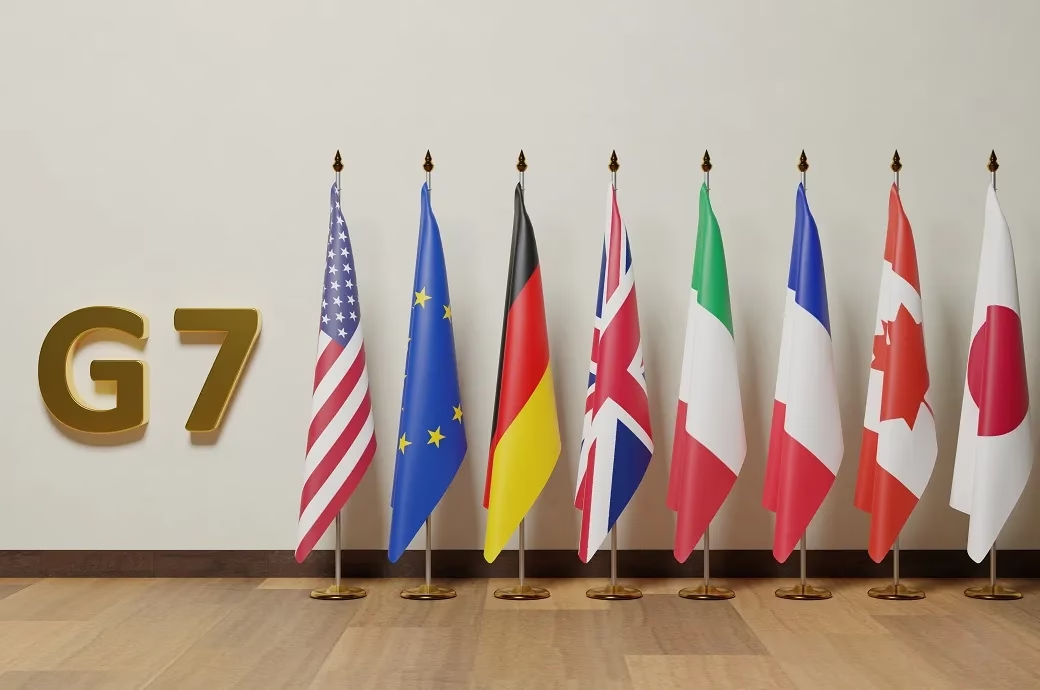G7 to Monitor Non-Market Policies to Fix Global Trade Imbalances
The Group of Seven (G7) countries recently held a three-day meeting of their finance ministers and central bank governors in Banff, Canada. After the meeting, they issued a statement saying they would continue to monitor non-market policies and practices that are harming the balance in global trade.
The G7 includes Canada, the United States, the United Kingdom, Japan, Germany, France, and Italy. These countries are some of the world’s largest economies. When they come together to discuss finance and trade, their decisions often affect the global economy.
What Are Non-Market Policies?
The term “non-market policies” usually refers to actions taken by governments that interfere with the natural market system. This can include things like:
- Giving export subsidies to certain industries
- Manipulating currency values to make exports cheaper
- Providing state support to businesses that would otherwise not survive in a free market
Even though the G7 statement did not directly name any country, many experts believe it was aimed at China. China has often been accused by the United States and others of using such policies to gain an unfair advantage in global trade. For example, by keeping the value of its currency low, China can make its exports cheaper, which helps Chinese companies sell more abroad.
A Common Concern
Canadian Finance Minister Francois-Philippe Champagne said during a press conference that the G7 countries found “common ground” on the major global issues they are facing. “I think it sends a very clear signal to the world… that the G7 is united in purpose and in action,” he added.
This shows that despite having different economies and policies, the G7 countries are trying to work together to solve global problems. Trade imbalance is one of the most serious issues because it can lead to economic tension between countries.
No Major Disagreements
US Treasury Secretary Scott Bessent told reporters that there were no big disagreements during the meeting. This is important because in the past, G7 meetings have sometimes seen sharp divisions, especially on trade and tariffs. But this time, the countries appear to be more united.
German Finance Minister Lars Klingbeil also shared his views. He said it is very important to resolve current trade disputes quickly because tariffs have placed a “heavy burden on the global economy.” Tariffs are taxes placed on imported goods, often used in trade wars. For example, when one country places tariffs on goods from another country, the other country may respond with its own tariffs. This can hurt businesses and consumers on both sides.
Tariffs Also Discussed
Although the G7 statement did not directly mention the reciprocal tariffs (especially the ones imposed by the US in the past few years), Finance Minister Champagne said that the issue was discussed during the meetings.
“We’re trying to enhance growth and stability. And obviously tariffs are something in that context that you can’t avoid discussing,” he said. This shows that while the countries may not agree on every detail, they are aware that tariffs are a major issue affecting trade and economic growth.
Why Trade Imbalance Matters
A trade imbalance happens when one country exports much more than it imports, or vice versa. For example, if Country A sells goods worth $100 billion to Country B, but only buys $20 billion in return, that creates a trade imbalance. Over time, such imbalances can lead to:
- Loss of jobs in the country that imports more
- Anger and tension between trading partners
- Unfair competition in industries like manufacturing or agriculture
By monitoring non-market practices and trying to resolve trade disputes, the G7 hopes to make global trade more fair and balanced.
Upcoming G7 Summit
The G7 leaders will meet again soon. A G7 Leaders Summit is scheduled for June 15–17 in Kananaskis, a mountain resort area in Canada. It is expected that the leaders will discuss the outcomes of the finance ministers’ meeting and take the talks further.
Many eyes will be on this summit to see how the G7 leaders plan to tackle ongoing trade challenges, global inflation, economic recovery after the pandemic, and growing geopolitical tensions.
Conclusion
The G7 countries have taken a strong step by agreeing to monitor unfair trade practices, especially non-market policies. While they did not mention China directly, it is clear that the focus is on bringing more fairness and transparency into the global trading system. At a time when many countries are struggling with inflation, high debt, and economic slowdowns, these discussions are more important than ever.
By standing together and working through trade disputes, the G7 aims to create a more balanced global economy where all countries can benefit fairly. The upcoming summit in June will be an important event to watch, as it could set the tone for future global trade policies.
